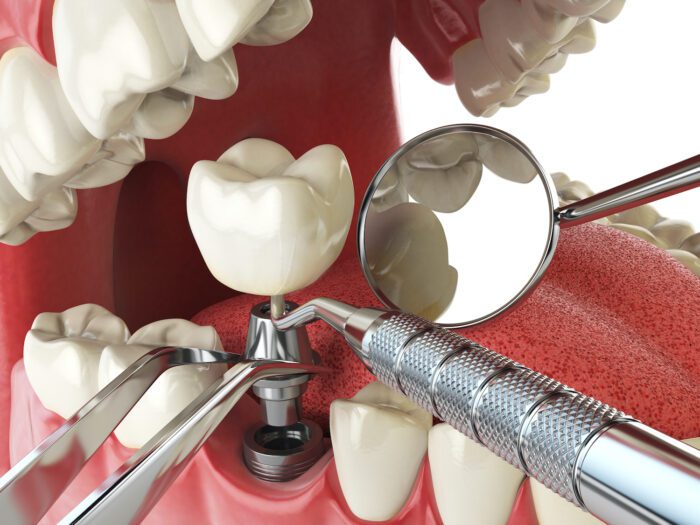When you’re missing one or more teeth in your mouth, you could develop worsening dental conditions. A missing tooth can often lead to shifting in the rest of your teeth, increased odds of gum disease, and even facial sagging. Dentists most often recommend dental implants in Calgary, AB, to help restore your bite and provide added stability. However, getting an implant is an invasive procedure that does require surgery. Not every patient can benefit from a dental implant right away.

What Prevents Dental Implants in Calgary, AB
Before you get an implant, your dentist will first need to examine your oral health and discuss your lifestyle habits. During your exam, your dentist will likely take x-rays of the affected area to examine the health of your remaining teeth as well as the bone density of your jaw. Having a strong and healthy mouth is a key basis for whether or not a patient is a good candidate for implants. But even if you do have a condition that could prevent an implant, you may still be able to get one with additional treatment.
Gum Disease
Gum disease not only increases the risk of implant failure, but it can also make the processes painful and uncomfortable. An infected gum line can weaken the stability of the implant site and cause loosening of the implant. In some cases, your implant may even fall out before it has time to integrate into your jawbone fully.
If your dentist does notice gum disease, they may recommend seeking periodontal therapy prior to getting an implant. Successful treatment could clean your gums and help ensure a smoother implant process.
Loss of Bone Density
Our teeth are connected to our jawbones through a root and nervous system. When you lose a tooth, it’s common to also lose some density in your jawbone. However, an implant needs a strong and sturdy jaw for successful placement. If you lose too much bone density, your implant could fail to integrate properly. This can lead to pain, discomfort, and the loss of your implant.
If your X-ray shows signs of jaw bone density loss, your dentist may recommend a bone grafting treatment to help restore it. In some cases, this is a separate appointment that requires its own healing time. In other cases, often when getting an extraction and immediate implant, your oral surgeon may be able to perform a bone graft at the same time as implant placement.
Smoking
Smoking can be a leading cause of the failure of implants for many patients. The harmful chemicals in a cigarette or cigar can negatively impact the titanium post of the implant as well as the health and stability of your gums. The sucking motion of smoking can also cause movement at the implant site, leading to potential loosening or loss of the implant. It’s recommended that patients try to stop smoking a few weeks before their scheduled implant placement.
If you’re missing a tooth, Foothills Dentistry has several restoration options available. Call us today at (587) 410-0821 to schedule a consultation and learn more about implant dentistry.
